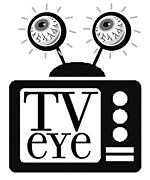TV Eye
'Moonlighting' and the Future of the Medium
By Belinda Acosta, Fri., Oct. 19, 2007

If there's one thing the previous "golden age" of television has with the present, it might be that no one knows what's going to happen next. When the medium was new, it took a few mavericks willing to roll up their sleeves, tinker with it, and play. Today, the way of making TV has been codified, and yet, a new horizon looms large, mainly because the very codification of TV – both in business and creation – has deadened the medium instead of improved it. Some exceptional TV has emerged, taking TV executives and viewers by surprise. What is the new model going to be? That's anyone's guess, except to say that searching for the perfect, one-size-fits-all model is the least likely scenario. A landscape that welcomes and encourages innovation are what dedicated viewers and creators are hoping for, and something several players came together to discuss during panels at this year's Austin Film Festival.
"If you're lucky enough to be part of a show that's said to change something in TV, also know that it mostly happens because the network wasn't paying attention," said Glenn Gordon Caron (Moonlighting, Medium). Caron was this year's AFF Outstanding Television Writer award winner, a spotlight he shared with fellow honorees John Milius (Distinguished Screenwriter) and Oliver Stone (Extraordinary Contribution to Filmmaking).
Besides launching Bruce Willis' career, Moonlighting (1985-1989) was an exciting departure for TV at the time it aired. Its knowing wink at the camera, its breaking of the fourth wall, and the occasional experimental episodes, like "Atomic Shakespeare" (based on The Taming of the Shrew) or "The Dream Sequence Always Rings Twice," filmed in black and white, are some of the reasons Moonlighting is now regarded among TV's most influential series, years after garnering praise and racking up Emmys and other awards. Yet, these episodes in particular were the cause of consternation among studio execs who kept telling Caron, "You can't do that."
Why? Some of the time it came down to money. More often it's a ridiculous allegiance to the precedent, said Thomas Schlamme (The West Wing, Studio 60 on the Sunset Strip), of network executives who answer to money and not to content.
"To be fair," Caron said, "executives at the network are probably supervising 21 shows." So, their ability to be open to the unusual is challenged. "The collision between art and commerce" along with the economic pressure to do the traditional 22 episodes (a requirement that is quickly crumbling) is at the forefront of TV's yeasty moment in time, Schlamme says. Parallel to this are the larger TV landscape (cable, the Internet), the proliferation of digital media that has democratized the ability to create content, and the expanding ability to access content (DVRs, DVDs, and again, the Internet). It is both an exciting and a scary time for those in TV – exciting for those who want to make TV, scary for TV execs unwilling or unable to change with the times. And what they're adapting to is still the big question. As traditional TV is not a particularly fast-moving creature, it's not off the mark to imagine a slow moving beast being nipped at from below by an ever burgeoning, fragmented scene thick with innovation but low on cash, while the traditional TV-scape is rich in cash but suffocating on its hermetically sealed bag of tricks. Still, there's a rip in that bag of tricks. And new media makers are eager to make their mark. Somewhere, there's got to be the perfect playground for TV to move to the next level, doesn't there? If I knew what it was, I'd be a rich woman.
As always, stay tuned.








